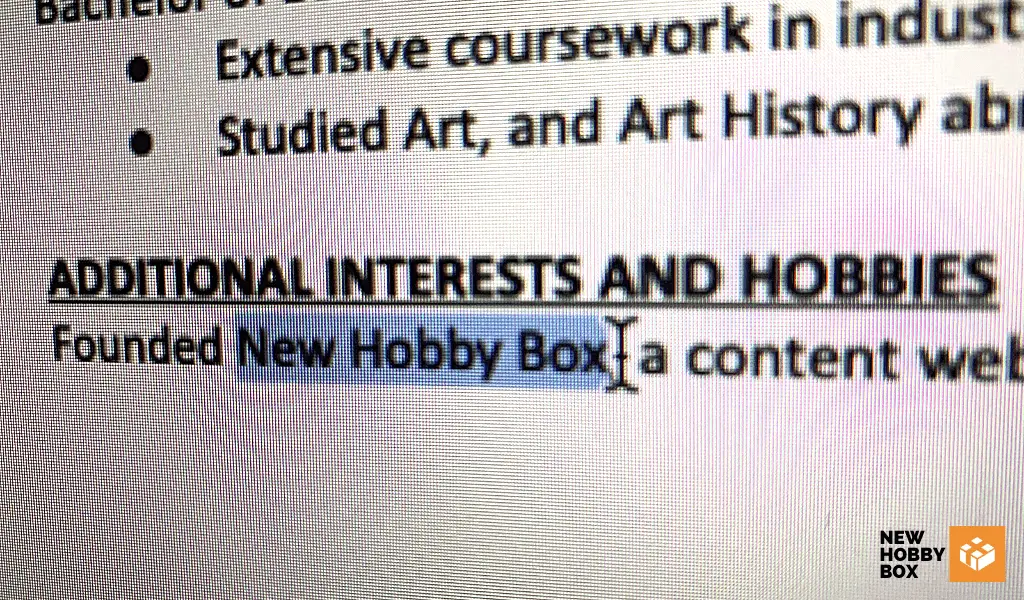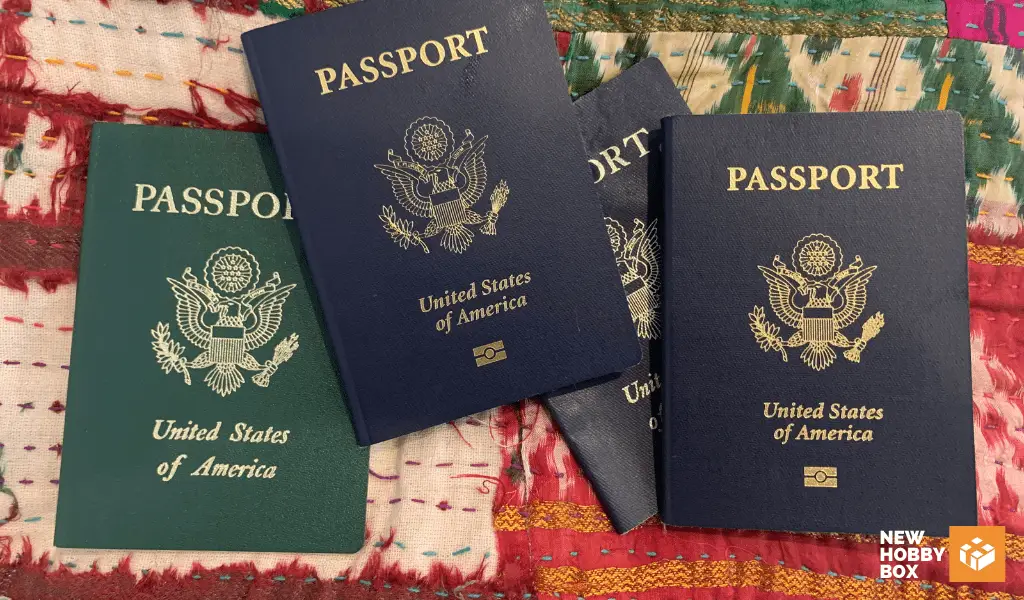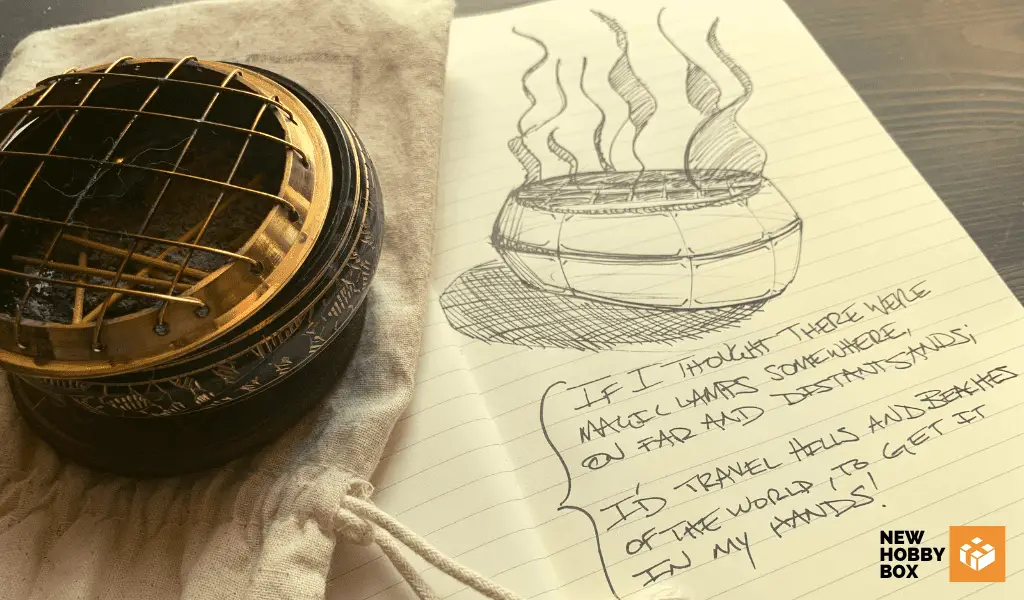
When prepping your resume, choose hobbies with care—some are worth more than others! Sure, binge-watching shows might be great for relaxation but won’t land you the job. So what hobbies and interests are the best to list on your resume?
Employers often look for hobbies on resumes that demonstrate particular skills such as creativity, communication, or leadership. Examples of hobbies employers might be interested in include taking classes to learn new languages, writing for a blog, or volunteering in the community.
There are certainly more than three hobbies that get employers to take notice, but 7 hobbies, in particular, check the box every time. Before we dive into each, let’s discuss whether hobbies should be included in a resume or not.
DO HOBBIES MATTER ON RESUMES?
Yes, hobbies matter on resumes and should be included. They can add a personal touch and provide insight into your interests and personality. They can also indicate cultural fit within a company and reveal valuable skills for the job.
For example, if you’re applying for a customer service role, having experience volunteering or hosting a podcast could show the hiring manager that you can think strategically or interact with people in a friendly manner.
So don’t be afraid to include relevant hobbies or personal interests that you feel passionate about on your resume!
Now that you know to include hobbies on your resume, you might be wondering which to include.
Throughout the rest of the article, we’ll take a closer look at what hobbies to list on resume, more specifically, 7 hobbies to mention in resume and that you should consider for personal and career development. We’ll outline what makes them so special and why they’re perfect resume hobbies.

1. LEARNING A LANGUAGE
Learning a language can be daunting, but it’s also one of the most rewarding tasks out there! Not only do you get an understanding of another culture and its customs, but you also get to reap the benefits of patience, dedication, and perseverance.
Why Employers Love This Hobby
Employers are looking for employees who have strong communication skills and the ability to work collaboratively with diverse teams. Learning a new language can demonstrate open-mindedness, creativity, and capacity for problem-solving.
It can also signal that someone is adaptable, eager to learn new skills, and has the patience and focus necessary for a successful career. It’s no wonder that many companies value resumes that show evidence of language learning as a hobby!
Best Way to Learn a New Language: italki
There are many different ways to learn a new language, the best, of course, is traveling to the country and immersing yourself in the culture.
But if you don’t have the opportunity to travel, there are plenty of tools you can use from home or on the go, and none better than the italki. It features over 150 languages, and it’s the closest thing you’ll find to learning a new language than actually being in a foreign land.
And that’s because you get a tutor for whatever language you’re hoping to learn.
You’ll find this speeds up your conversational language skills tremendously and makes learning a language far more engaging than learning definitions and proper grammar as your first lesson.
2. VOLUNTEERING
Volunteering is a great way to show off your leadership abilities and gain invaluable experience. Whether it’s helping out in a soup kitchen, working with animals, or assisting at an after-school program, volunteer activities demonstrate that you have the initiative and dedication employers appreciate.
Why Employers Love this Hobby
Employers like to know that their team members are compassionate and have a commitment to making a difference. It also shows that they have the drive to step up and take on responsibilities outside of their job.
Volunteering also demonstrates social responsibility, which is becoming increasingly important in today’s business world.
And if you volunteer in an area related to your field (such as a teacher volunteering with a literacy program), it can show that you’re dedicated to honing your skills and understanding industry trends.
Best Way to Volunteer: United Way
If you’re looking for a great place to start your volunteer journey, look no further than the United Way. They have a wide range of programs available to help out in your local community, and their website has a great search tool to find the best fit for you.
Whether it’s helping out with food pantries, after-school programs, or disaster relief efforts – you’ll be sure to find something that resonates with you and make a real difference.

3. CREATIVE WRITING
Creative writing and journaling are excellent ways to express your thoughts and ideas, and aside from being outlets, they are also packed with benefits to your health.
An added benefit is that journaling just requires your time, creative juices, and something to record your thoughts with. This is one of the reasons it made the list of 5 hobbies every college student should try at least once – it’s affordable!
Whether you’re writing fiction, non-fiction, or poetry – getting creative can give you a competitive edge when it comes to job applications.
Why Employers Love this Hobby
Employers look for individuals who can think creatively and express themselves clearly. Writing is an excellent way to demonstrate your communication skills, and it can show that you can think outside of the box and come up with new ideas.
Writing samples also give employers a sneak peek into who you are as a person and how you view the world – which can be incredibly attractive qualities when they are considering which candidate to hire.
Best Way to Get Started: Start Writing!
If you’re looking for a great place to get started with creative writing, there’s no better place than opening a journal and letting your pen hit the paper. If that’s too open-ended for you, then have a look at some tools and kits to inspire new thinking.
If you’re looking for something a little more formal and instructional, several online courses exist – we’d recommend Skillshare since they have a wide range of teachers covering different styles of creative writing. Plus, they are the best in the world at their crafts.
4. PODCASTING
Podcasting is a great way to showcase your knowledge and build relationships with people in the same industry. It’s an effective way to create an audience and get your ideas out into the world.
But don’t be fooled into thinking it’s easy – just because there are millions of podcasts doesn’t mean anyone can do it well. But, with enough practice and persistence, you can break through, at least enough for your big interview.
Why Employers Love this Hobby
Employers are looking for people who have unique perspectives on their given industries, and podcasting is a great way to demonstrate that. It shows you are passionate about your craft, and it also showcases your ability to communicate effectively with others.
It also allows you to build relationships with people in the same industry, which can be incredibly valuable when it comes time for job applications.
Podcasting has many different benefits, including:
- Talking: Employers will see that you are willing to communicate and express yourself.
- Recording: You will get knowledge on how to record your audio.
- Editing: You will likely edit the audio, which is another great and useful skill.
- Content Creation: You will know how to come up with fun, new ideas and act on them to create engaging content.
- Marketing: Once you publish your podcast, you will learn how to market it to increase viewership while also getting a very desirable skill.
Best Way to Get Started: Start Listening
If you’re looking for a great place to get started with podcasting, begin by listening to some of the top podcasts in your industry. Look at what makes these shows successful and how they engage their audience. This will give you an idea of what kind of content resonates with people.
Once you have an idea of what you want to talk about, it’s time to start creating!
There are plenty of free tools available like Anchor or Apple Podcasts that make it easy to get started.
5. PHOTOGRAPHY AND EDITING
Photography is another great hobby that can give you a competitive edge when it comes to job applications. It shows employers that you have an eye for detail and an understanding of how to capture interesting images.
Why Employers Love this Hobby
Employers are looking for people who can take initiative and come up with creative solutions. Photography and editing is a great way to showcase this strength as it requires you to think outside of the box and execute your ideas.
It also shows that you have a keen eye for detail, and employers will be impressed by how well you can take a boring image and make it something special through editing. Photography and editing is also an excellent way to demonstrate your creative problem-solving skills, which is a highly sought-after trait.
Best Way to Get Started: Start Shooting!
If you’re looking for a great place to get started with photography and editing, the best way to start is by shooting! Grab a camera (even if it’s just your phone!) and start exploring different angles, lighting, and locations.
Once you’ve got the basics down, it’s time to start editing! There are plenty of tools available that are free, but if you want premium tools like Adobe Lightroom and Photoshop you may need to hand over quite a bit of cash to do so over the course of a year. Learning how to edit your photos can take some time but is well worth the effort in the long run.
So, if you’re looking for a great hobby to add to your resume and set yourself apart in the job market, consider taking up photography and editing! It’s a skill that employers will love and one that can help you stand out from the crowd. So get shooting today!
6. PLAYING SPORTS
Playing sports is another great hobby to put on your resume as it shows employers you’re a team player who can work well with others and has a competitive edge. It also demonstrates that you understand the importance of self-discipline and dedication, two traits that are highly desirable in any job.
Why Employers Love this Hobby
Playing sports is not just a great hobby to put on your resume – it’s an absolute must! It proves you’re a team player, have dedication, and are committed to physical fitness.
Plus, team sports requires all sorts of skills like communication, cooperation, problem-solving, and leadership – qualities any employer would be looking for.
Last but not least – it shows that you’re passionate about something, resilient, and know how to lead effectively – so why wouldn’t you want to add this sporty activity to your resume?
Best Way to Get Started: Join a Team
If you’re looking to get involved in sports as a hobby, there are plenty of ways to get started:
- Start by researching what options are best for you. From recreational leagues like softball or soccer to fitness classes such as biking and swimming, you’ll be able to find the perfect fit for you.
- Go out and meet people who already partake in sports activities. You’ll find it’s easier to make a commitment when surrounded by others that have similar interests.
- You should also consider solo sports, where you can still socialize, but you’re competing with yourself ultimately. Bouldering and climbing are great examples of this – amazing fitness activities that challenge your brain just as much as your body.
- And lastly — have fun! With the right attitude, sports can become much more than just a hobby – it can become a way of life.
So, if you’re looking for an exciting and rewarding activity to add to your resume, consider taking up sports! It’s sure to impress any employer.

7. LEARNING AN INSTRUMENT
Learning an instrument is not only a great way to express yourself, but it also helps you develop skills that are in high demand. Playing an instrument requires discipline and dedication, it also helps with problem-solving and creative thinking – both of which are critical for success in any field.
Plus, if you can put on a show, well, there’s nothing quite like it.
Why Employers Love this Hobby
Employers like to see that job applicants have well-rounded hobbies, particularly those that demonstrate skill and dedication. Learning an instrument demonstrates both of these qualities, as it requires discipline, practice, and focus to master a certain piece.
Plus, employers see this kind of experience as a great way for applicants to stand out from the competition – after all, there’s no shortage of job seekers with traditional hobbies (e.g., running or reading).
In short, employers value learning an instrument as a hobby because it shows not only dedication and skill but also creativity.
Best Way to Get Started: Online Learning
If you’re looking to add learning an instrument to your resume, the best way to get started is by finding a teacher, whether online via AI, a human in-person, or a person online. A good teacher can help you develop proper technique and practice habits that will give you the foundation for success as you progress in your musical journey.
Another great way to get started is by finding an online course. There are plenty of sites out there that offer courses in a variety of instruments – from the piano to the guitar to the drums. Skillshare has amazing courses on this as well; from your standard fare of piano and guitar, all the way to sitar and Irish tin whistle.
You can also find several free and paid mobile apps – I use an app called Ultimate Guitar: Chords & Tabs which is amazing for guitar, and I use that for lessons, tablature, chords, and even video lessons. There are other instruments on the app, but since I only play guitar, I can’t vouch for how good other instruments are with Tabs.
These courses usually come with practice exercises and other resources, such as video tutorials, so you can learn at your own pace without having to worry about wasting money.
HOW TO WRITE ABOUT HOBBIES ON RESUME
Now that you have a list of 7 hobbies for your resume, let’s shift gears and look at how to actually transfer a hobby to your resume. You want to make your resume stand out from the crowd, but it should still be relevant to the job search. A well-chosen hobby can demonstrate your soft skills, personal interests, and even a bit of your personality. In this section, we’ll dive into the art of presenting your hobbies on a resume in a way that enhances your chances of landing that dream job.
First, let’s talk about relevance. When choosing which hobbies to include on your resume, it’s important to consider their relevance to the position you’re applying for. Hiring managers are looking for candidates who will fit into their team and company culture and bring value to the company. Therefore, hobbies that align with the job requirements or demonstrate transferable skills can make a difference.
For example, if you’re applying for a graphic design position, mentioning your photography hobby could be a plus.
Now that you’ve narrowed down your list of relevant hobbies, whether you’ve used the ideas presented throughout this article or you’ve pulled in true hobbies already a part of your life, it’s time to focus on presentation.
You don’t want to clutter your resume with an exhaustive list of every pastime you’ve ever pursued. Instead, dedicate a small section to your hobbies, ideally towards the end of your resume in the interests section or retitle it as interests and hobbies section (hobbies and interests section). Use bullet points to list them concisely, allowing employers to quickly scan through your interests.
As you list your hobbies, think about the skills they demonstrate. This will help you to provide context and make your hobbies more meaningful to potential employers. For instance, if you’ve participated in team sports, this can highlight your teamwork and leadership abilities. Similarly, playing a musical instrument might indicate discipline, creativity, and a strong work ethic.
5 Examples of How to Write About Hobbies in Resume
Using the tips provided above, here are some examples of how you might write about your hobbies on a resume. Remember to keep it concise, relevant, and genuine, while highlighting the skills that make you an attractive candidate.
- Photography: Developed a keen eye for composition and color through regular practice, honing my attention to detail and creative problem-solving skills. Active member of a local photography club, collaborating with other enthusiasts and sharing feedback to improve our craft.
- Marathon Running: Completed multiple marathons over the past three years, demonstrating discipline, commitment, and perseverance. Regularly participate in local running clubs and events, fostering a strong sense of community and team spirit.
- Blogging: Authored a personal blog focused on healthy living and fitness, showcasing strong written communication skills, SEO knowledge, and a passion for sharing knowledge with others. Regularly engage with readers through social media, enhancing my ability to build and maintain relationships.
- Volunteering at Animal Shelter: Dedicated weekend volunteer at the local animal shelter, showcasing my empathy, compassion, and ability to work under pressure. Gained experience in coordinating fundraising events and managing social media campaigns for the organization.
- Guitar Playing: Self-taught guitarist with over five years of experience, highlighting my dedication to continuous learning, creativity, and fine motor skills. Frequently perform at local open mic nights, showcasing my ability to perform confidently under pressure and adapt to new environments.
Don’t forget, these are just examples, and the best way to showcase your hobbies on your resume is to tailor them to your own experiences and the position you’re applying for. By doing so, you’ll not only create a memorable resume but also give potential employers a glimpse into your personality and interests outside of work.
Lastly, be genuine about your hobbies. Employers can often spot when candidates exaggerate or fabricate hobbies to fit a specific job profile. Be honest about your interests and, if asked about them during an interview, be prepared to discuss your experiences and the skills you’ve gained from them.
EMPLOYERS WANT TO SEE CURIOSITY ABOVE ALL ELSE
No matter what hobbies you choose to pursue, employers want to see that you have positive skills and experiences. They look for applicants who think critically and make decisions on their own.
They want to see that you have a genuine interest in learning new skills and that you are willing to devote your time and energy to mastering those skills. So don’t be afraid to pursue hobbies that are outside of the box – employers will appreciate it!
In addition, employers also look for applicants who demonstrate dedication. They want to know that you have the drive and determination to stick with something, even when things get difficult. So don’t be afraid to challenge yourself – it could pay off in a big way!
With the right attitude and dedication, any hobby can impress employers as long as it showcases your skillset and demonstrates your commitment to self-improvement.
Good luck with your job search and as always –
Happy Hobbying!
